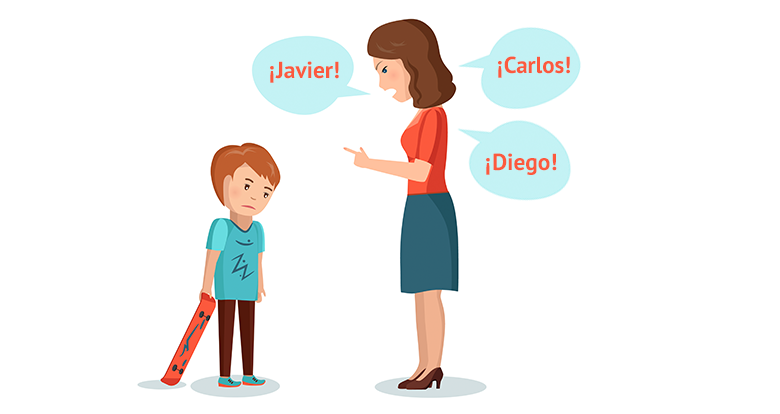Why do parents often confuse the names of their children?
It is very common for our parents when they call us to tell us the names of our brothers or sisters and they may even say all the names and the last one is yours. But this situation already has a scientific answer:
The neuroscientists and psychologists of Duke University mention that it is a mere cognitive error because the brain tends to relate the people of our environment by groups: family, friends, co-workers, to save space and if the brain gets lost in a time when our thoughts are very fast, is when confusion happens, but then react quickly mending the error. In this study, it was ruled out that this event has to do with the age, ethnicity or physical similarity of the children.
The study shows that this cognitive error:
- It happens when the names are phonetically similar or when they start with the same letter. (as in the case of the name of my brothers and mine that start with C)
- It also happens when this phonetic similarity does not exist, such as when the name of a child is exchanged with a daughter and vice versa, or with children and partners regardless of their sex and their name and this is because similar links are shared with us.
- And finally, it is possible that our parents call us by the name of the pet.
There you have
it, our brain is the one that makes us have that confusion of names and
it can all happen to us, although to moms a little more.




Comentarios
Publicar un comentario